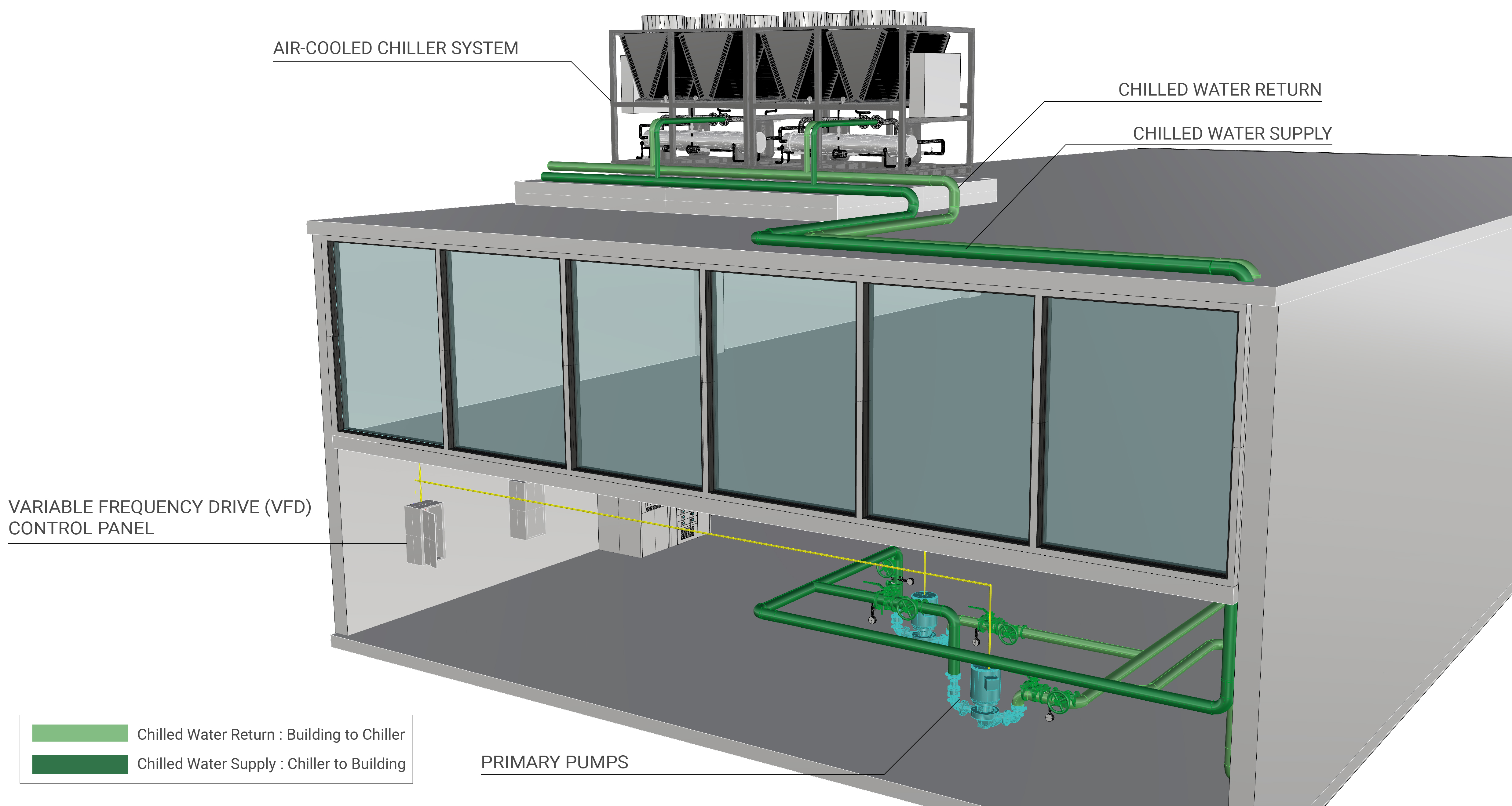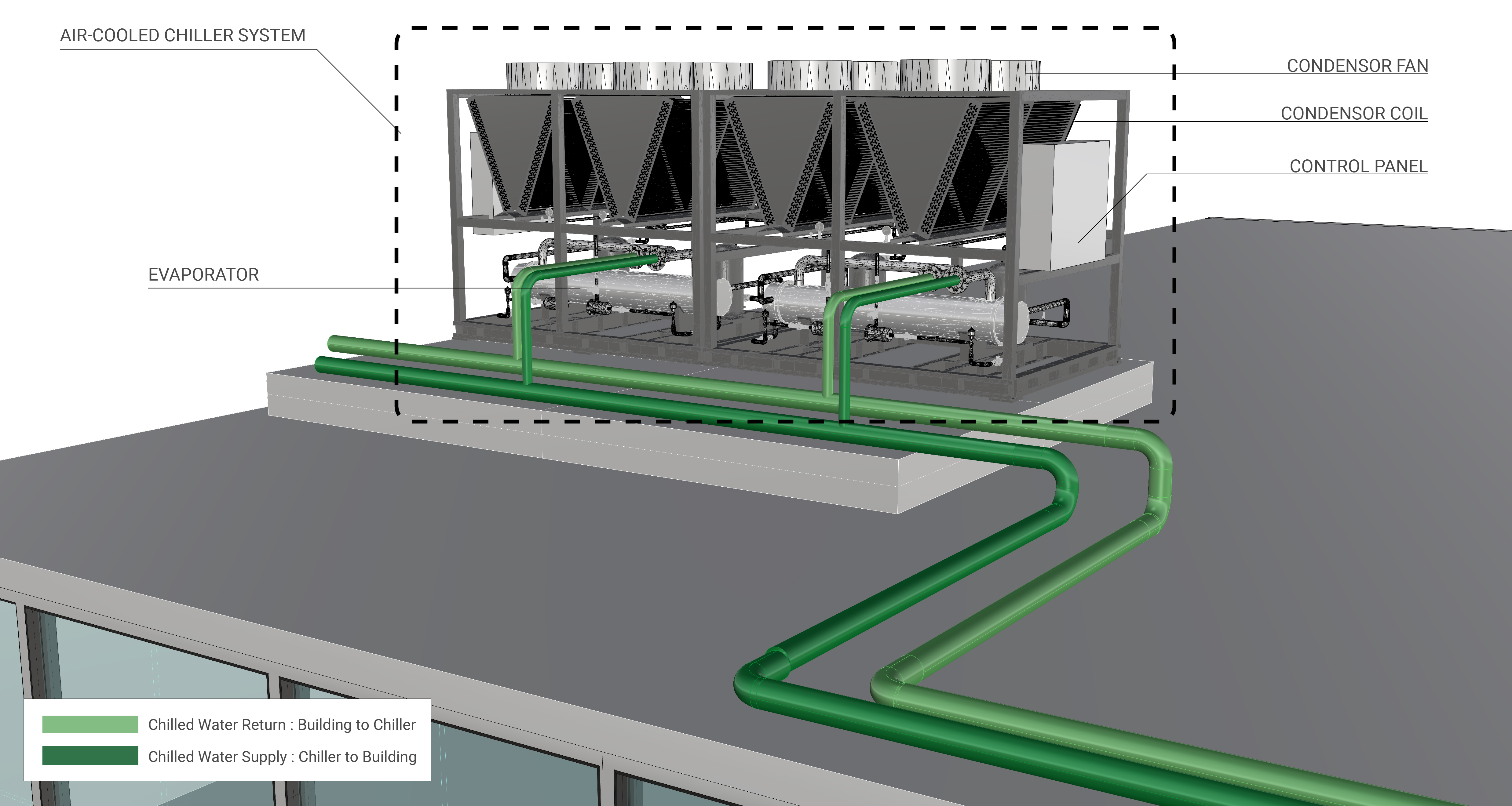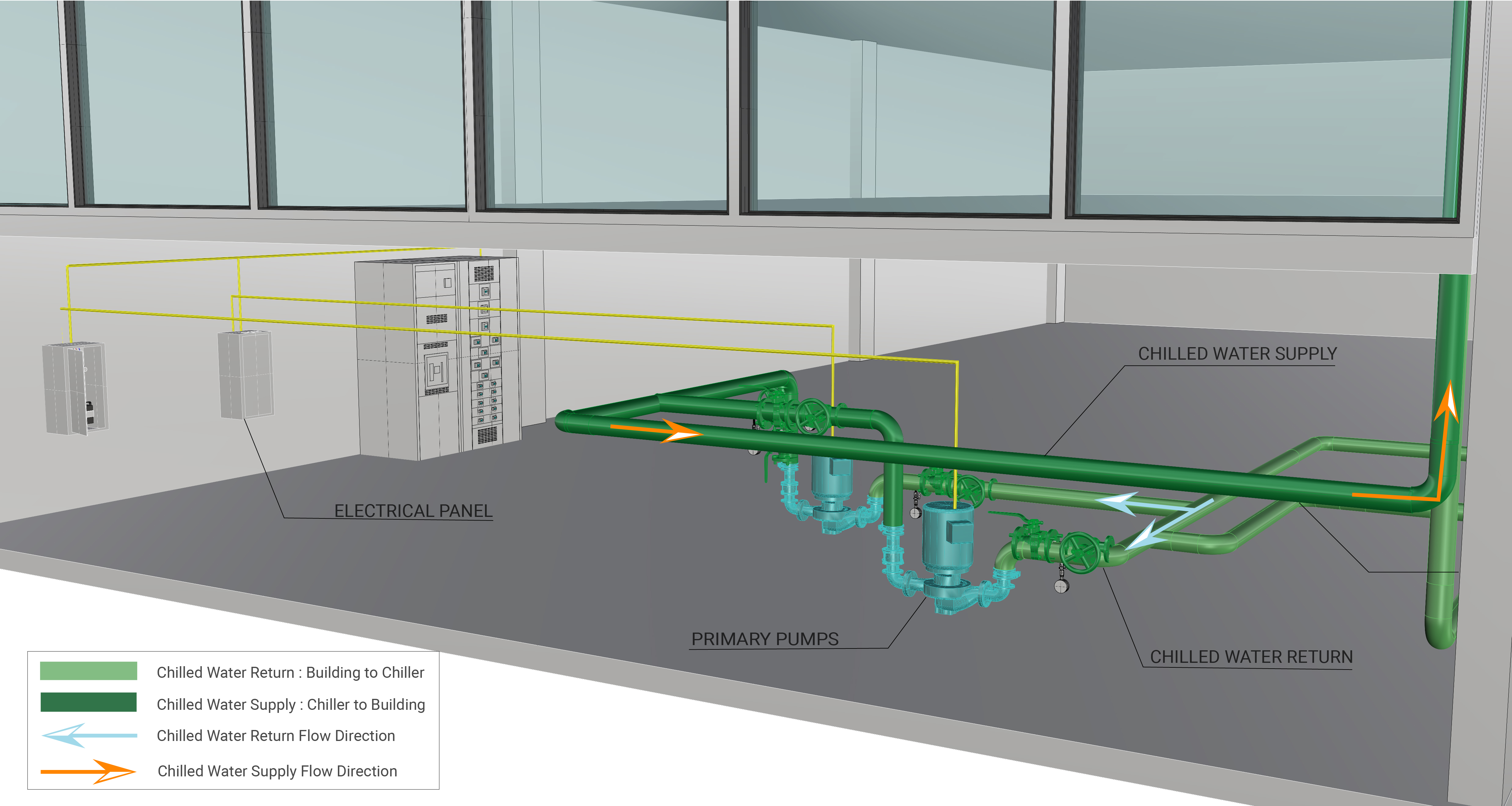General Overview
An air-cooled chilled water plant consists of an air-cooled chiller system and a chilled water loop system operating together to meet the cooling demand in a facility. The air-cooled chiller produces chilled water through the basic refrigeration cycle. The primary chilled water pump circulates the chilled water between the chiller and the chilled water loop. In some cases, a secondary chilled water pump distributes the chilled water produced by the chiller to air handling units (AHUs) in the building.

Systems
Air-cooled Chiller
An air-cooled chiller provides chilled water to the chilled water loop system and components. Learn More

Chilled Water Loop
A chilled water loop system consists of a closed loop distribution system that supplies chilled water to the building and includes components (see Figure 3). Learn More

Evaluation of Energy Consumption
The primary energy consumption of an air-cooled chilled water plant is the sum of the energy consumed by its individual components. The thermal energy rejected from the building to the outdoors can also be measured to assess the plant’s overall performance, typically expressed in kilowatts of power consumed per ton of cooling provided (kW/ton). Table 1 summarizes the system component measurements and values required to quantify the annual energy consumption and operating characteristics of an air-cooled chilled water plant.
| Plant Quantification | Values to be Quantified | Energy Consuming Component |
|---|---|---|
| Air-cooled chilled water plant electricity usage (kWh) |
|
|
| Cooling load on building/Heat rejected to the outdoors | Average hourly thermal load of chiller evaporator (Btu/h) |
Further Reading
-
ASHRAE (2020). 2020 ASHRAE Handbook: HVAC Systems and Equipment. Atlanta, GA: ASHRAE.
-
Gordon, J.M.; Ng, K.C. (2000). Cool thermodynamics: The engineering and physics of predictive, diagnostic and optimization methods for cooling systems. Cambridge International Science Publishing; pp. 159-177.
-
Wei, J.; Reddy, T.A. (2003). “Reevaluation of the Gordon-Ng Performance Models for Water-Cooled Chillers.” ASHRAE Transactions, Vol. 109, Part 2. Atlanta, GA: American Society of Heating, Refrigerating and Air Conditioning Engineers.


